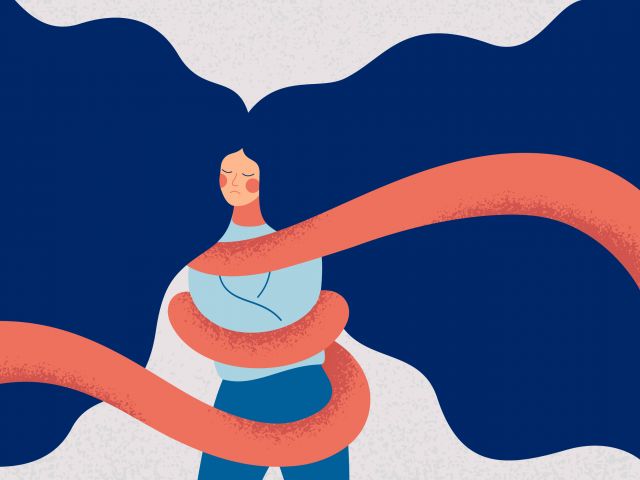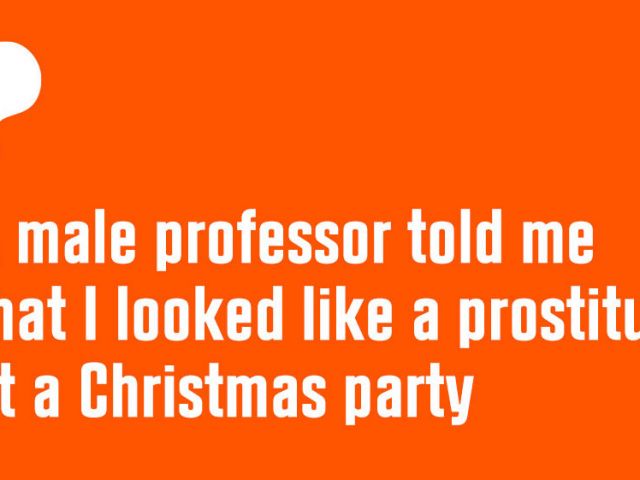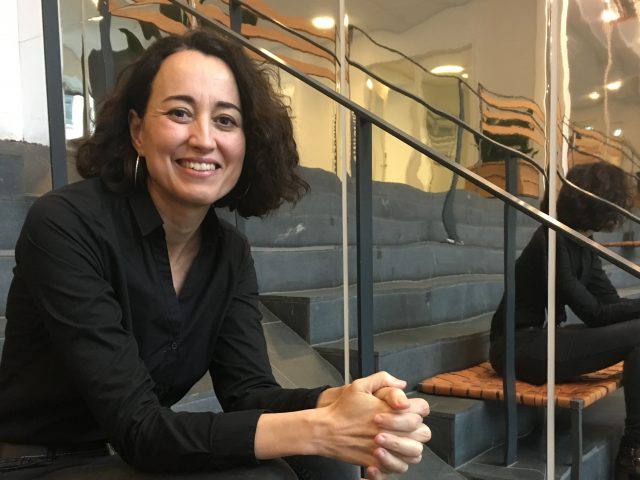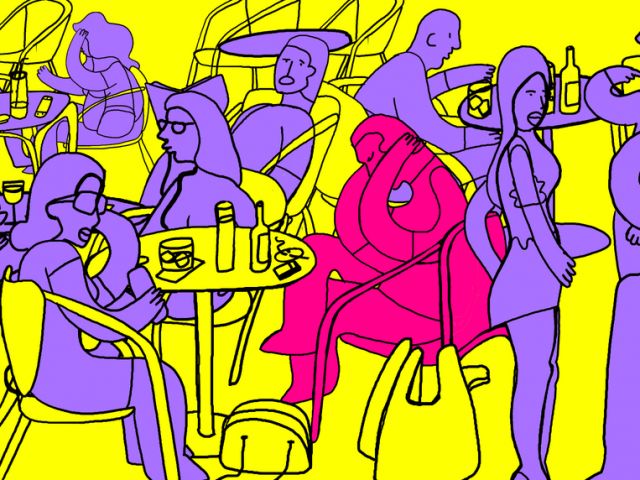Sexism at CBS: “It’s a giant ship that needs to be turned”

(Photo: Anna Holte)
Two student counsellors who deal with cases of harassment at CBS explain that inquiries about sexism follow the overall focus in society. They hope that more dialogue and a wider acceptance of individual differences can change the culture and have the same effect as when issues like stress, anxiety and depression were addressed.
Yet again, stories about sexism at Danish workplaces and industries are being shared and discussed. The renewed spotlight on sexism has also reached higher educations.
Most recently, the Minister for Higher Education and Science, Ane Halsboe-Jørgensen, has initiated adding questions on sexism to the nationwide study environment and quality survey.
Sexism is also present at CBS, explains Mette Gøtterup-Tang, Student Coach at CBS and member of a three-strong team that helps and supports students who have experienced harassment either at or outside CBS.
“Both men and women contact us about different types of harassment, including sexual harassment. In that sense, CBS reflects what is happening in society, so it’s not surprising that it also happens here,” she says.
Due to professional secrecy, Mette Gøtterup-Tang cannot share the number of students who have experienced sexual harassment at CBS but says that more enquiries are being made since CBS initiated a campaign about harassment, offensive behavior and bullying in February 2018.
“Now that people know where to go to get help, they reach out to us,” she says.
Oliver Tramsen, student guidance counsellor and part of the team, adds that the increased societal focus on sexism after #MeToo in the fall of 2017, and the recent debate followed by the Danish TV hostess Sofie Linde’s speech on sexism in the media industry during the live TV event Zulu Comedy Gala, have also made more people share their stories.
“It’s a cultural societal movement. People talk about the topic and it’s being emphasized that talking about it and drawing a line is acceptable. So it has definitely encouraged more people to contact us,” he says.
What’s harassment to me, isn’t necessarily harassment to you – and that’s okay
A female CBS student has shared with CBS WIRE her story of being sexual harassed at Café Nexus’ Semester Start Party in 2019. In the article, she explains how a guy slapped her backside on the dance floor. She told him off, and shared the experience with two older students from her intro program who, when she asked for support, told her to “pay no attention to it” and that “you girls like that kind of attention”.
Mette Gøtterup-Tang emphasizes that one of the issues with sexism is that some people can find it hard to empathize and accept that they have crossed someone’s line.
“If it’s too much, it’s too much. People can think what they want, but they are not in a position to decide what other people can feel about a given situation. Their own opinions don’t matter, really,” she says and explains that what makes her sad is when onlookers do not step in if they witness harassment.
“It often makes the situation feel even worse when no one is helping or showing support. Moreover, if the people you share your story with don’t take what you have experienced seriously, you feel belittled,” she says.
So, what can be done about sexual harassment?
Neither Mette Gøtterup-Tang nor Oliver Tramsen believe in a zero-tolerance policy or a 75-bullet list with rules. They have more faith in the power of dialogue.
“We can easily agree that slapping strangers on the backside isn’t exactly a nice way to behave, but a list of rules won’t make the problem disappear,” says Oliver Tramsen and continues:
“We get much further with dialogue. We need to make it okay to talk openly about sexism and speak up when it happens. That’s what will help in the long run.”
Mette Gøtterup-Tang hopes that dialogue, talks and discussions about sexism, what it is and how it feels, will trigger a change like the one achieved with stress, anxiety and depression.
“Stress, anxiety and depression are still challenges people face, but we have made it legitimate to talk openly about them, and have figured out ways to help and support people facing these challenges. It’s okay to say you are stressed out and need a break. We need the same understanding and acceptance of the problem of sexism,” she says and adds:
“Dialogue is the key here.”
No one is shrill or sensitive
However, to obtain the best dialogue about sexism, people need to see beyond their own noses and accept that sexual harassment looks very different from person to person.
“If we define people as being shrill or sensitive, we kill any constructive dialogue. We can’t define people by their feelings, we need to just accept how they feel, and we can move on from there,” says Oliver Tramsen.
But there is also a need to make room for such dialogues.
Mette Gøtterup-Tang explains that discussions about stress, anxiety, depression and sexism are easier to orchestrate in primary school and high school, as students usually have a class teacher they can turn to and who can initiate such discussions. At university, it is different.
“You don’t have specific class teachers who are responsible for the well-being of the class as a whole in the same way and who can help create a safe space for the students to hold these discussions. It’s up to the students themselves to have these talks and discuss what kind of culture they would like their study program to have,” she says.
Oliver Tramsen adds:
“And it’s even more difficult at CBS, as each program does not have one café or bar where its students can meet classmates from their program, as they have at the University of Copenhagen.”
He says that dealing with sexism and general harassment is also a bit trickier at CBS compared to society in general, as a lot of nationalities are gathered here.
“Cultural changes are hard to make, and even harder to make at CBS. We have people from Italy, the US, Germany, Denmark and China, each with a different perception and personal codex for how to act. It’s a giant ship that needs to be turned,” he says.






































































































































Comments